Inflammation may not sound like a big deal, but in today’s fast-paced, convenience-driven lifestyle, it has become a silent health threat linked to everything from weight gain to chronic diseases. For those looking to lose weight sustainably, adopting a diet rich in Anti-Inflammatory Mediterranean Foods could be a game-changer. This diet doesn’t just promise weight loss; it offers a way to manage inflammation naturally through delicious, nutrient-dense foods that support your body’s well-being.
Let’s dive into how inflammation can affect your weight, why the Mediterranean diet stands out as an anti-inflammatory powerhouse, and the specific Anti-Inflammatory Mediterranean Foods that make it work.
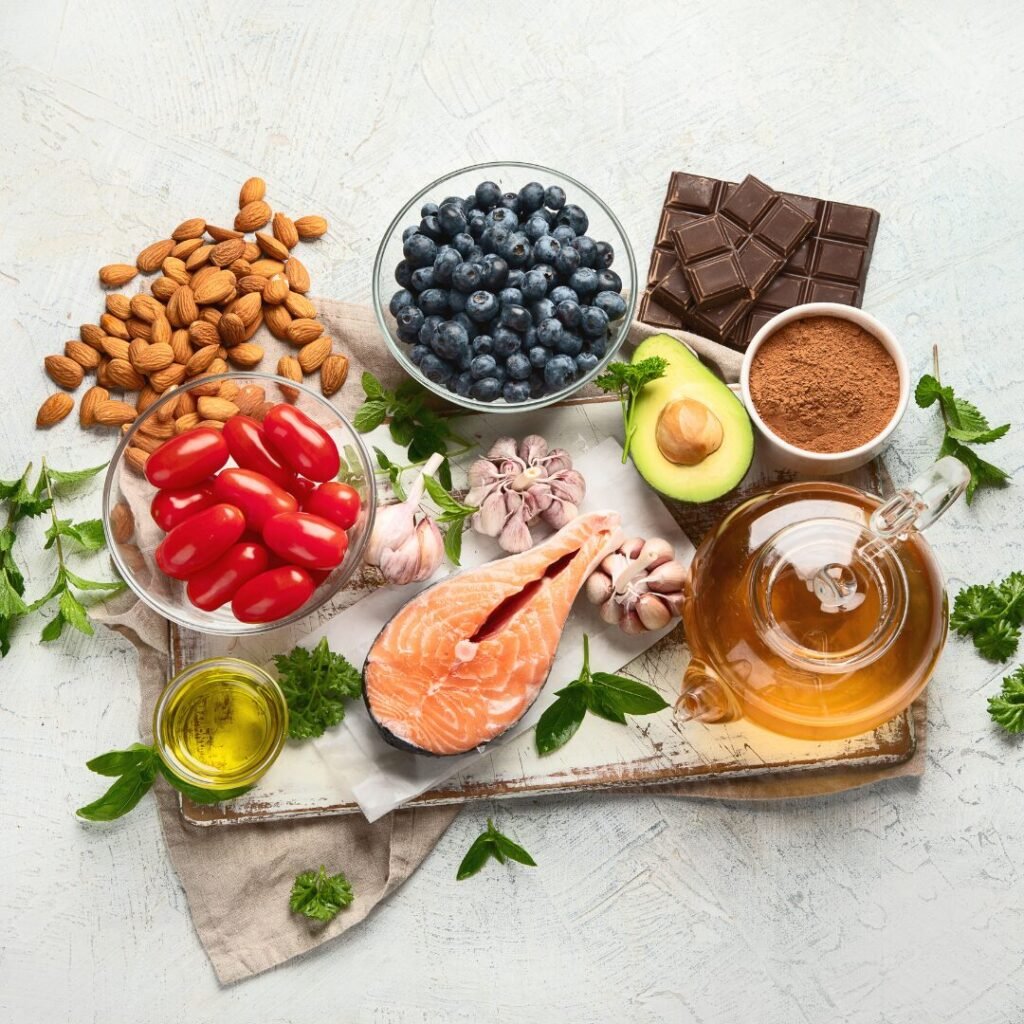
Understanding Inflammation and Its Role in Weight Gain
What is Inflammation?
Before we get into the specifics of Anti-Inflammatory Mediterranean Foods, let’s cover the basics of inflammation itself. Inflammation is our body’s response to injury or infection. When you cut your finger, for instance, you might notice redness and swelling. This is acute inflammation, a normal and necessary process that helps heal injuries. However, chronic inflammation is a different story.
Chronic inflammation is a low-level, long-lasting inflammation that can occur when our immune system stays in “defense mode” due to factors like poor diet, stress, or pollution. This kind of inflammation can silently damage tissues and organs over time, increasing the risk of diseases like diabetes, heart disease, and obesity.
The Inflammation and Weight Gain Connection
Chronic inflammation doesn’t just affect disease risk—it can actually make it harder to lose weight. Here’s how: when your body is in a constant state of inflammation, it releases chemicals called cytokines that can lead to insulin resistance, pushing your body to store fat rather than burn it. This effect is particularly strong in visceral fat (belly fat), which not only looks undesirable but also puts you at risk for many health issues. To dive deeper into strategies that target belly fat specifically, check out our article, Mediterranean Diet and Belly Fat Loss: Simple Steps, for effective, research-backed tips.
By reducing inflammation, you’re giving your metabolism a boost, making it easier for your body to burn fat. That’s where Anti-Inflammatory Mediterranean Foods, like those in the Mediterranean diet, can make a huge difference!
Why the Mediterranean Diet is Naturally Anti-Inflammatory
Balanced Composition of Anti-Inflammatory Foods
The Mediterranean diet isn’t a single “magic” food or trick. Instead, it’s a balanced mix of whole foods, healthy fats, lean proteins, and an abundance of fresh fruits and vegetables. This diet combines these elements in a way that reduces inflammation naturally, helping to counteract the inflammatory effects of processed foods, refined sugars, and unhealthy fats common in Western diets.
Whole Foods Working Together
One of the things I love about the Mediterranean diet is how the foods work in harmony. For instance, you’re not just eating berries one day and leafy greens the next; you’re combining these Anti-Inflammatory Mediterranean Foods in meals that enhance each other’s health benefits. When you pair foods like leafy greens with a drizzle of olive oil, for example, the fat helps your body absorb more of the greens’ nutrients, amplifying their anti-inflammatory effects.

Key Anti-Inflammatory Mediterranean Foods and Their Mechanisms of Action
Let’s explore some of the superstar foods in the Mediterranean diet, breaking down exactly how each one helps fight inflammation and supports sustainable weight loss.
Olive Oil: Liquid Gold for Inflammation
- Mechanism: Olive oil, especially extra virgin, is packed with a monounsaturated fat called oleic acid, as well as polyphenols—antioxidants that actively reduce inflammatory markers in the body. Research shows that these compounds help neutralize free radicals, which can damage cells and contribute to inflammation.
- Impact on Weight Loss: Olive oil’s high-fat content makes it filling, helping control cravings and promoting satiety without triggering inflammation. Personally, I love drizzling it on salads or roasted veggies; it adds flavor, satisfaction, and a dose of anti-inflammatory goodness.
Fatty Fish (Salmon, Sardines, Anchovies): Omega-3 Powerhouses
- Mechanism: Fatty fish are loaded with omega-3 fatty acids, particularly EPA and DHA, which work to reduce inflammation on a cellular level by inhibiting inflammatory cytokines. Regular intake of omega-3s has been shown to significantly lower levels of inflammation in the body.
- Impact on Weight Loss: Omega-3s are known to regulate hormones linked to fat storage, especially belly fat. By eating Anti-Inflammatory Mediterranean Foods like fatty fish, you’re not only reducing inflammation but also supporting heart health and improving insulin sensitivity.
Leafy Greens (Spinach, Kale, Swiss Chard): Nutrient-Dense and Anti-Inflammatory
- Mechanism: Leafy greens are full of antioxidants, including vitamin C and flavonoids, that help combat oxidative stress, a significant driver of chronic inflammation. They’re also high in fiber, which promotes gut health—a key factor in reducing inflammation.
- Impact on Weight Loss: The fiber content in leafy greens helps regulate blood sugar, preventing the spikes and crashes that lead to cravings. Leafy greens are also low in calories but high in volume, making them perfect for anyone looking to shed pounds.
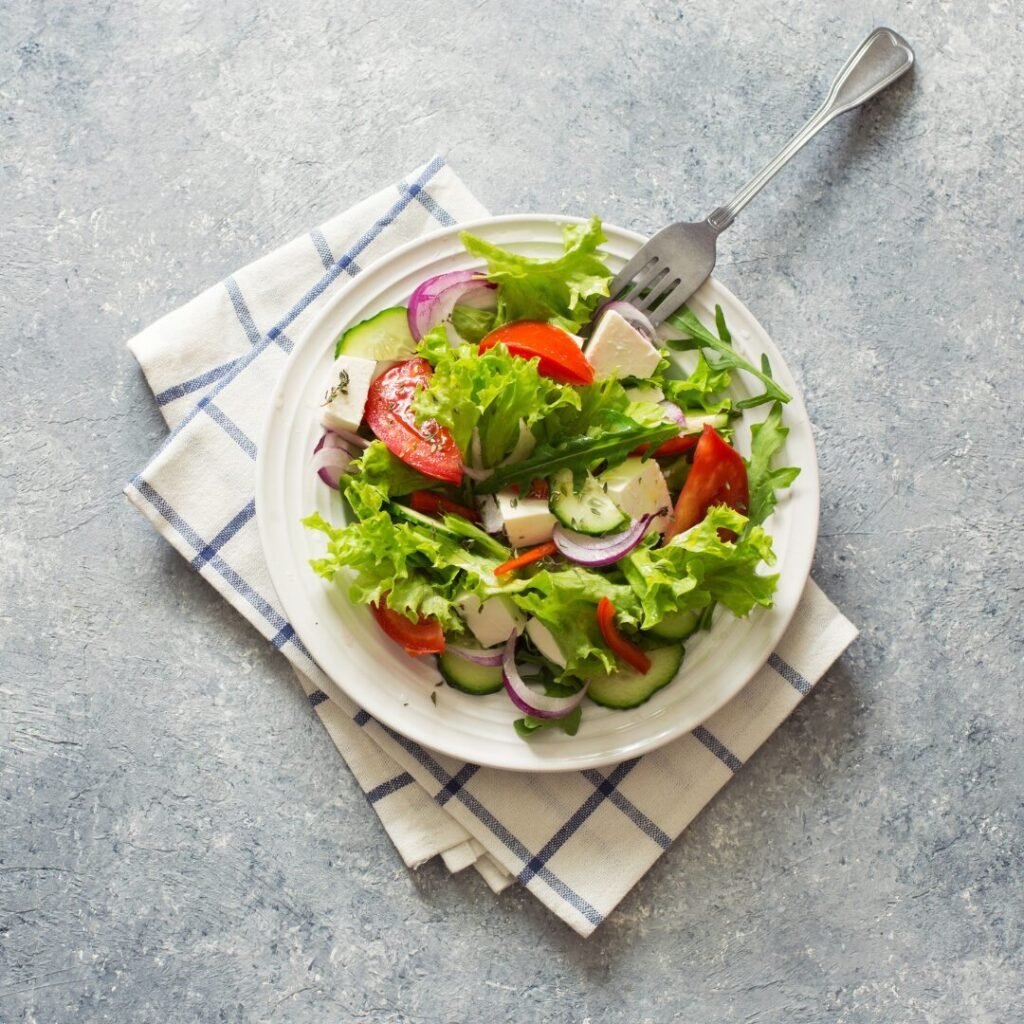
Incorporating Anti-Inflammatory Mediterranean Foods into Your Routine
Simple, Sustainable Tips
Incorporating anti-inflammatory Mediterranean foods into your daily life doesn’t require a massive overhaul. Instead, start small! For instance, try adding a side of roasted veggies with olive oil to your lunch or simply sprinkle nuts on your oatmeal. Over time, you’ll find it easier to integrate these foods into your daily routine.
Habit-Building Strategies for Lasting Change
The key to lasting change is building habits. Plan your meals ahead, prepare ingredients in bulk, and get creative with recipes. Remember, each small habit builds on the last, leading to a diet that becomes second nature. For more inspiration on easy-to-adopt Mediterranean habits for weight loss, don’t miss our article Mediterranean Habits That Make Losing Weight a Breeze!
How an Anti-Inflammatory Diet Supports Sustainable Weight Loss
Improved Metabolic Health
Moreover, reducing inflammation boosts insulin sensitivity, which means your body can better use glucose for energy rather than storing it as fat. As a result, this metabolic shift becomes key to sustainable weight loss.
Enhanced Satiety and Reduced Cravings
In addition, the fiber, healthy fats, and proteins in Anti-Inflammatory Mediterranean Foods help keep you fuller for longer, thereby reducing the urge to snack between meals.
Long-Term Health Benefits
Not only does an anti-inflammatory diet help with weight loss, but it also lowers your risk of chronic illnesses. In this way, you’re not only managing your weight, but you’re also actively improving your health.
Conclusion
Embracing Anti-Inflammatory Mediterranean Foods is more than a diet—it’s a lifestyle shift that nurtures your body and supports your goals. By gradually adding nutrient-rich foods like olive oil, fatty fish, leafy greens, and berries, you’ll fight inflammation, boost metabolism, and create a lasting path to weight loss.
Remember, change doesn’t happen overnight. Start with one small step, and watch as it leads to sustainable, healthy weight management and a happier, healthier you.
F.A.Q.
Adding anti-inflammatory Mediterranean foods to your daily meals can help reduce inflammation naturally. Here are some of the best options:
-
Olive Oil: Packed with monounsaturated fats and antioxidants, olive oil is a potent anti-inflammatory, perfect for cooking or as a salad dressing.
-
Fatty Fish (like salmon, sardines, anchovies): High in omega-3 fatty acids, which help lower inflammatory markers and improve heart health.
-
Leafy Greens (spinach, kale, Swiss chard): These greens are full of antioxidants and fiber, which help reduce oxidative stress and support gut health.
-
Nuts (walnuts, almonds): These are packed with healthy fats, fiber, and vitamin E, all of which help reduce inflammation.
-
Berries (blueberries, strawberries): These fruits are low in sugar and high in antioxidants, making them excellent for fighting inflammation.
Chronic inflammation can make weight loss challenging by disrupting the body’s natural fat-burning processes:
- Cytokine Release: Inflammation triggers the release of chemicals called cytokines, which can lead to insulin resistance. This resistance encourages the body to store more fat, especially in the belly area.
- Impact on Metabolism: When the body is constantly inflamed, metabolism can slow down, making it harder to burn calories effectively.
The Mediterranean diet fights inflammation with nutrient-dense foods that regulate blood sugar, improve insulin sensitivity, and support weight loss. Key ingredients like olive oil, fatty fish, and leafy greens reduce inflammation, boost metabolism, and aid in weight management.
Transitioning to an anti-inflammatory Mediterranean diet doesn’t have to be difficult. Here are some easy ways to incorporate these foods:
- Start Small: Try adding a handful of nuts, like almonds or walnuts, to your daily snacks.
- Use Olive Oil: Replace butter or processed oils with extra virgin olive oil when cooking or dressing salads.
- Add Fatty Fish Weekly: Include fatty fish, such as salmon or sardines, in two meals per week.
- Blend in Leafy Greens: Add a handful of spinach or kale to smoothies, soups, or pasta dishes.
- Snack on Berries: Use fresh berries as a natural sweet treat, or add them to yogurt or oatmeal for breakfast.

Nour is a registered dietitian, nutrition researcher, and founder of MedDietMindset. With a passion for evidence-based nutrition, she specializes in Mediterranean diet strategies, PCOS management, and sustainable weight loss. Nour is dedicated to transforming complex scientific research into clear, actionable guidance to support healthier, long-lasting lifestyle changes. Through her blog, she empowers readers to build habits that prioritize well-being, balance, and vitality.
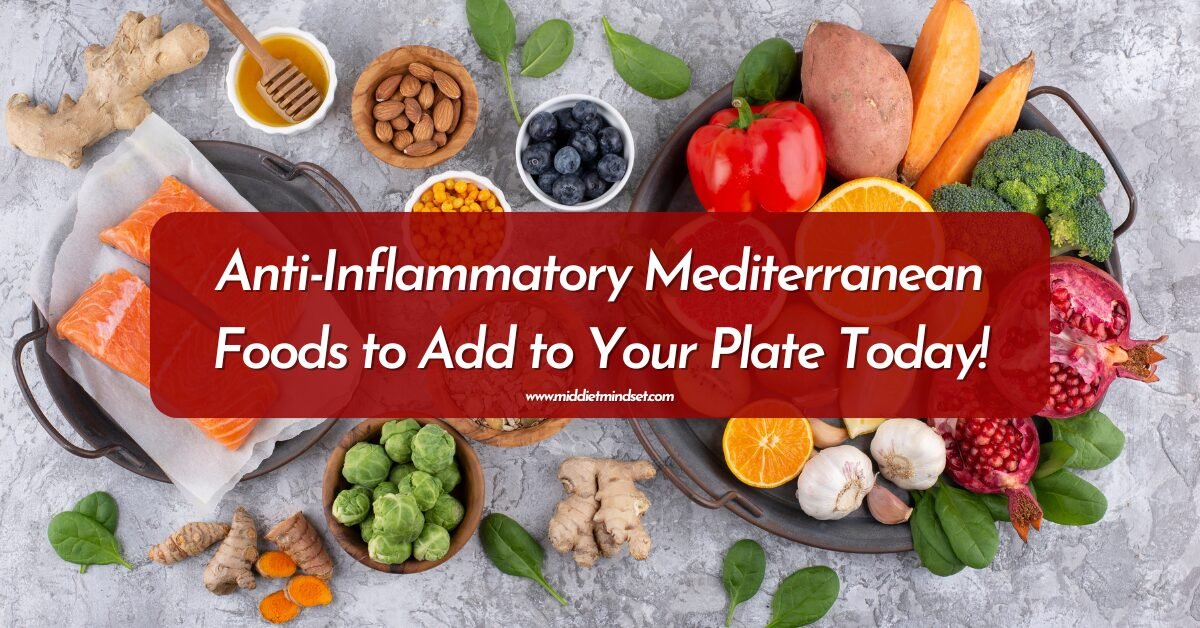

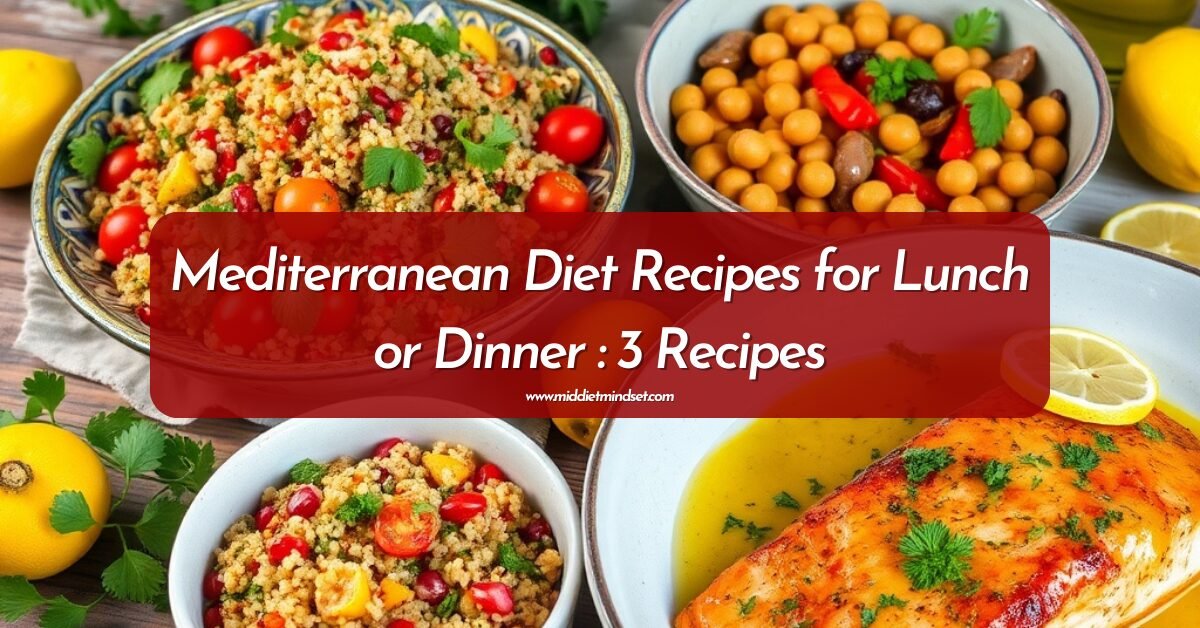
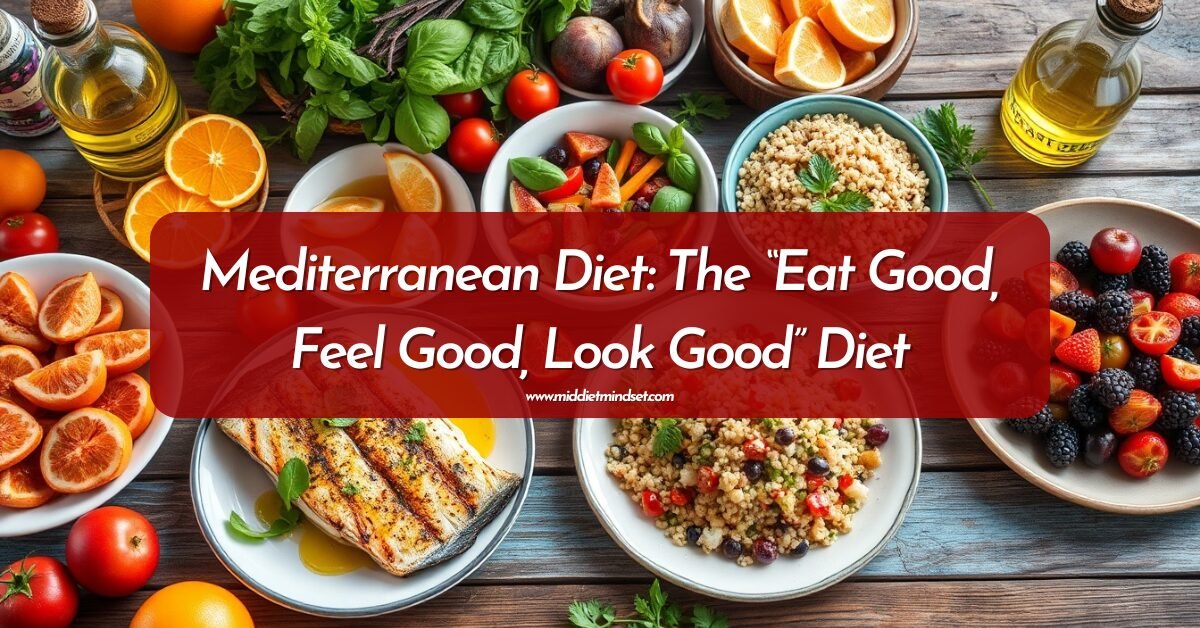

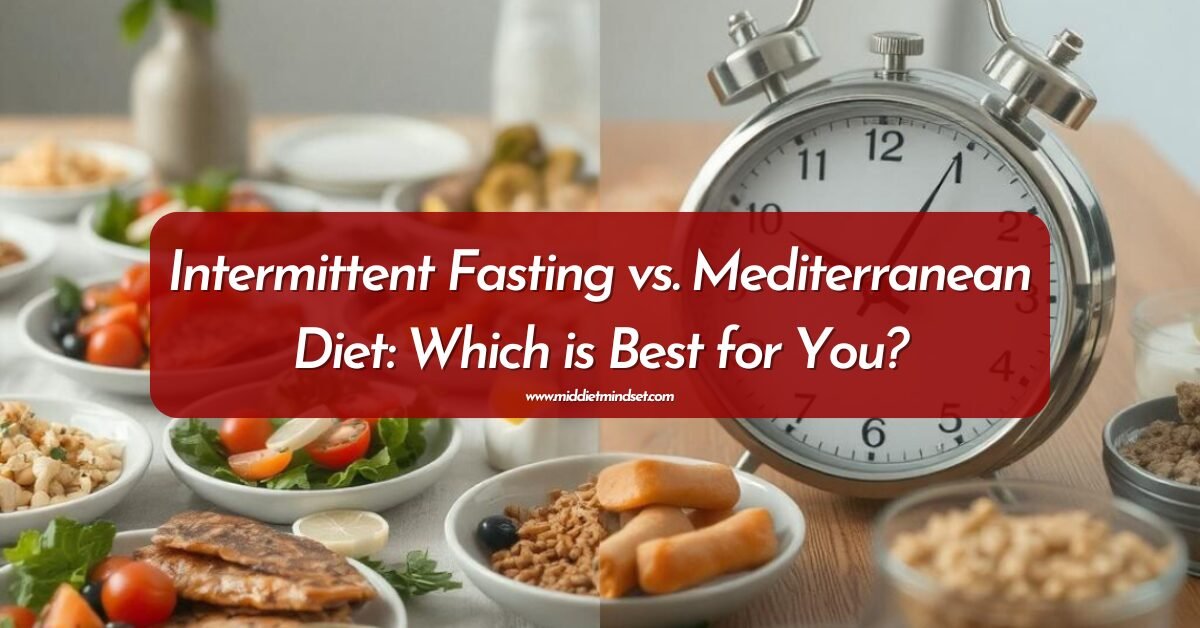
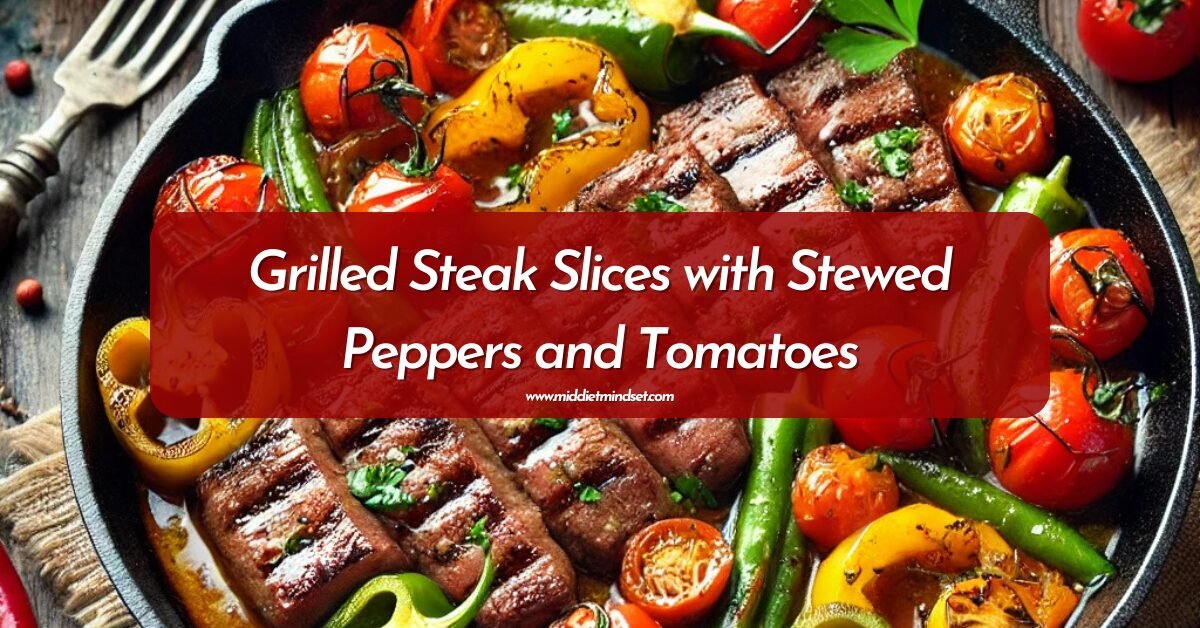
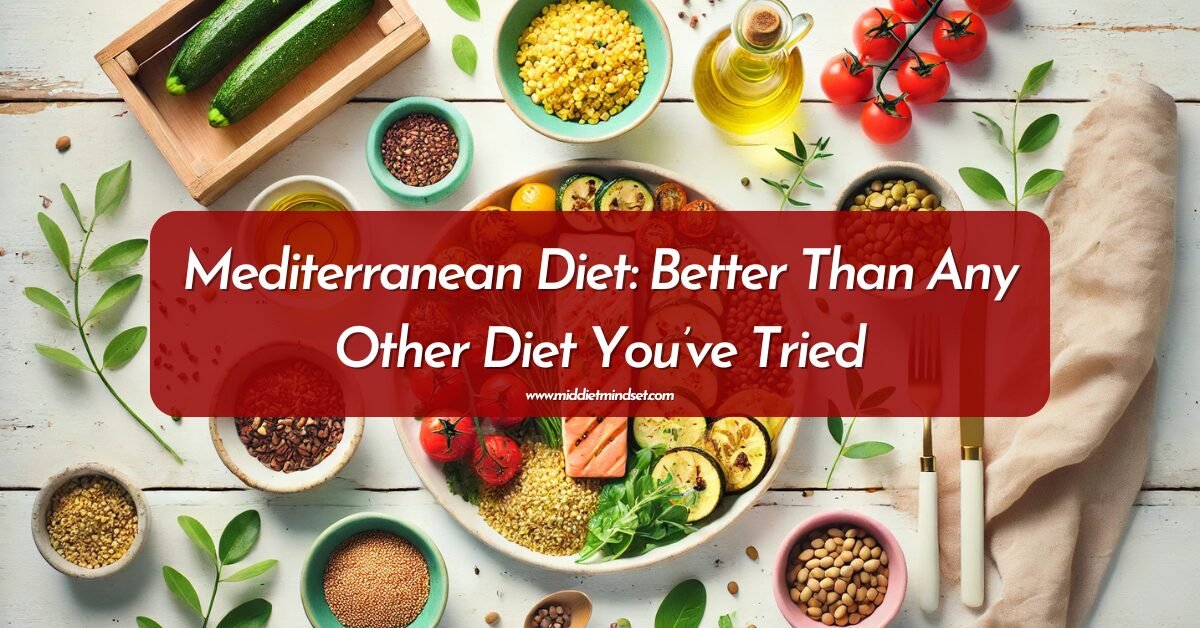
Pingback: Mediterranean Diet and Gut Health: Why Your Microbiome Matters! – MedDiet Mindset
Pingback: Morning Routine for Weight Loss: How to Accelerate Fat Loss – MedDiet Mindset